More Articles

Whipped eggs whites are versatile. Properly whipped up egg whites add body to angel food cakes, bake into delightful souffles, make fluffy frosting, and puff up meringues. Improperly whipped egg whites are flat, dense and turn to liquid -- something that doesn't benefit any recipe they are in. Troubleshooting where you went wrong can help you attain those fluffy whites.
You Whipped Cold Eggs
Souffles and cakes rely on the air you generate from whipped egg whites. To get height and proper aeration in your egg whites you need room temperature eggs. Cold eggs take longer to whip and have a denser texture, once you finally get them to whip. Since warm eggs are harder to separate, bring your eggs out and separate them straight from the fridge. Then, bring the egg whites to room temperature. If you're making a meringue, however, you'll want to whip cold egg whites so that you have a dense, firm structure.
The Yolk Did You In
When you're whipping egg whites, fat is the enemy. If the egg white has any trace of yolk, you won't get the volume you need from your egg whites. Separate your egg whites and yolks using two different bowls. If you get yolk in an egg white, save the whites and use them in a different recipe.
Your Utensils Weren't Clean
The smallest amount of grease or oil can deflate your egg whites. Start with clean, sanitized utensils that are grease-free. Ideally, you should use a copper bowl -- because copper reduces the amount of time it takes to whip egg whites and reduces the risk of over-whipping -- but other bowl types won't hinder the process. Don't use plastic bowls, because fat particles often settle into scratches in the plastic and interfere with your egg whites.
Oops, There's No Acid
Acid adds stability and increases the volume of your whipped egg whites. So, if you omit the acid, you might notice your egg whites are flat, have too much liquid or don't peak like they should. Add a small amount of acid, such as vinegar, lemon juice or cream of tartar, once your egg whites start to froth but before they reach soft peaks.
You Went Full Throttle
Whipping egg whites doesn't mean you turn your mixer to high and beat your egg whites until fluffy. In fact, you should start out on a low speed until your egg whites start to froth, which takes about 30 seconds to 1 minute. Stick to medium speed the rest of the way so that you get small, stable air bubbles in the egg whites. Also, don't over mix. Once egg whites show granules on the sides of your bowl or become curdled, you've gone too far and your mixture is likely to break and ooze. You can fix this by beating another egg white into the mixture.
The Sugar Came Too Early
Sugar adds sweetness, but it also gives your final product a denser, shiner finish. Adding the sugar too early can deflate your egg whites and decrease the volume you get. Add sugar to your egg whites once you reach the soft peak stage -- the point when the eggs form peaks that slope over as you pull the whisk out. Use a superfine sugar so that it dissolves. Only add a tablespoon or two, depending on how sweet you need it -- too much sugar can weigh down your egg whites. Then continue to whip until your egg whites are moist, stiff and with shiny pointed peaks, as you lift the whisk from the bowl.
Don't Let Them Sit
You must use whipped egg whites immediately. As they sit, they lose volume. Therefore, only make whipped egg whites when you're able to use them right away and don't store them for later.
Related Articles

What Causes Cheesecakes to Sink in the ...

How to Make Vanilla Ice Cream With ...

Can You Whip Egg Whites Without an ...
What Do Bakeries Use in Their Whipped ...

How to Make Light Airy Italian Bread ...

How to Make Whipped Frosting Without ...

What Happens if You Whip Condensed Milk?
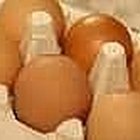
How to Make Your Deviled Eggs Look Great

Do You Use a Wire Whip or Flat Beater ...

How to Make Omelets With Baking Powder
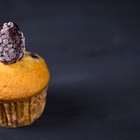
What Causes Cupcakes to Fall?

How to Fix Lumpy Buttercream Frosting
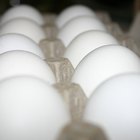
How to Store Egg Whites
How to Keep Yolks in the Center of Hard ...

How to Stiffen Meringue
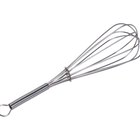
How to Whisk Flour

Can You Eat an Egg That's Been Frozen?
How Long Before a Hard Boiled Egg Goes ...
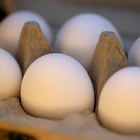
How to Substitute Knox Gelatin for Eggs

What Can You Substitute for Baking ...
References
Writer Bio
Shailynn Krow began writing professionally in 2002. She has contributed articles on food, weddings, travel, human resources/management and parenting to numerous online and offline publications. Krow holds a Bachelor of Science in psychology from the University of California, Los Angeles and an Associate of Science in pastry arts from the International Culinary Institute of America.
Photo Credits
Brand X Pictures/Stockbyte/Getty Images